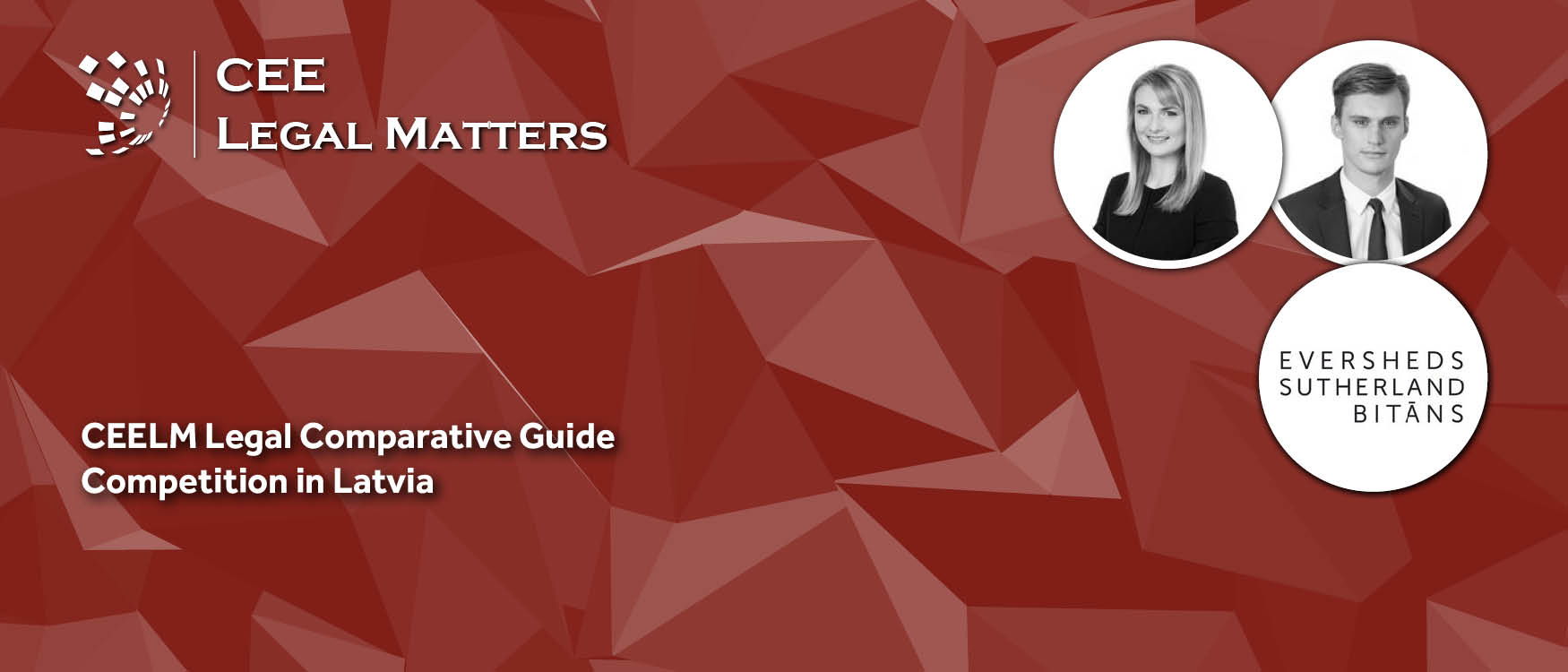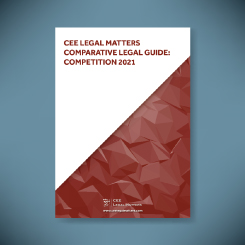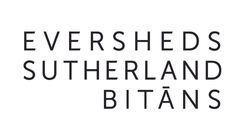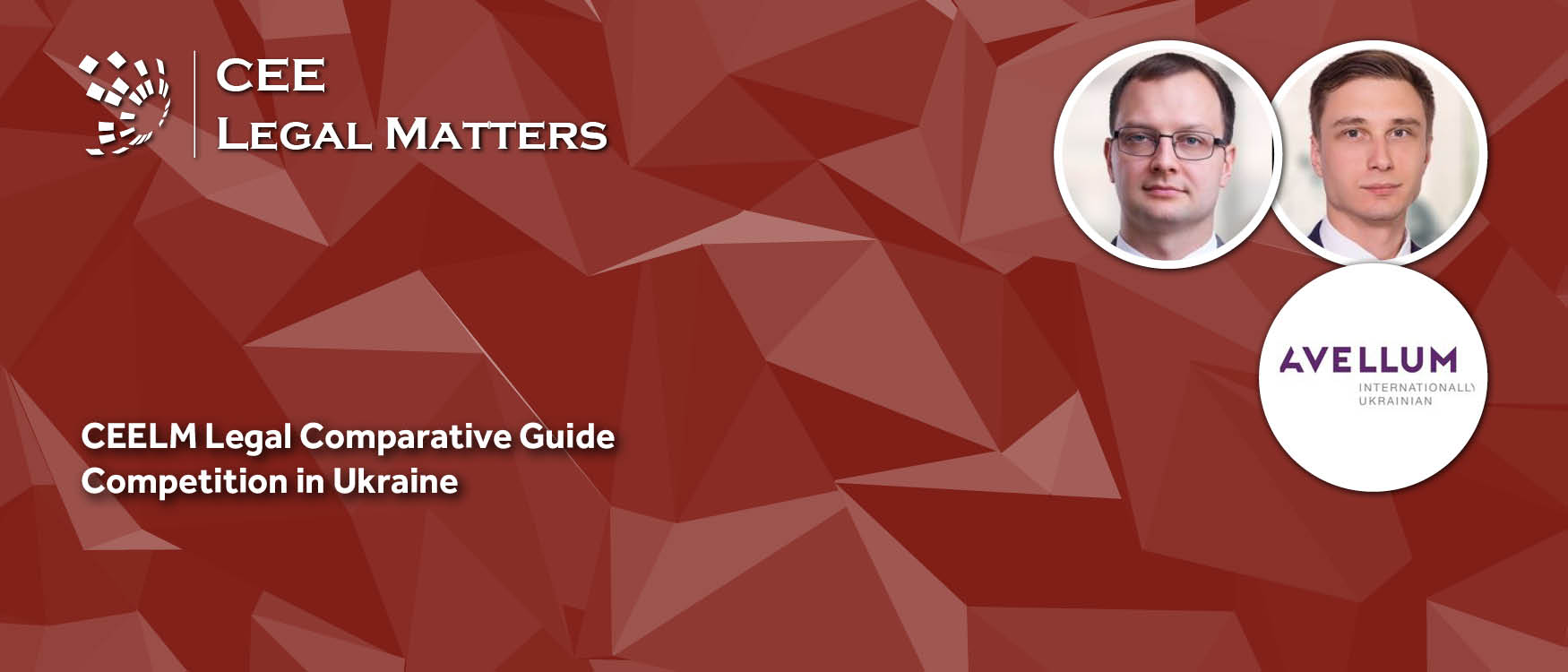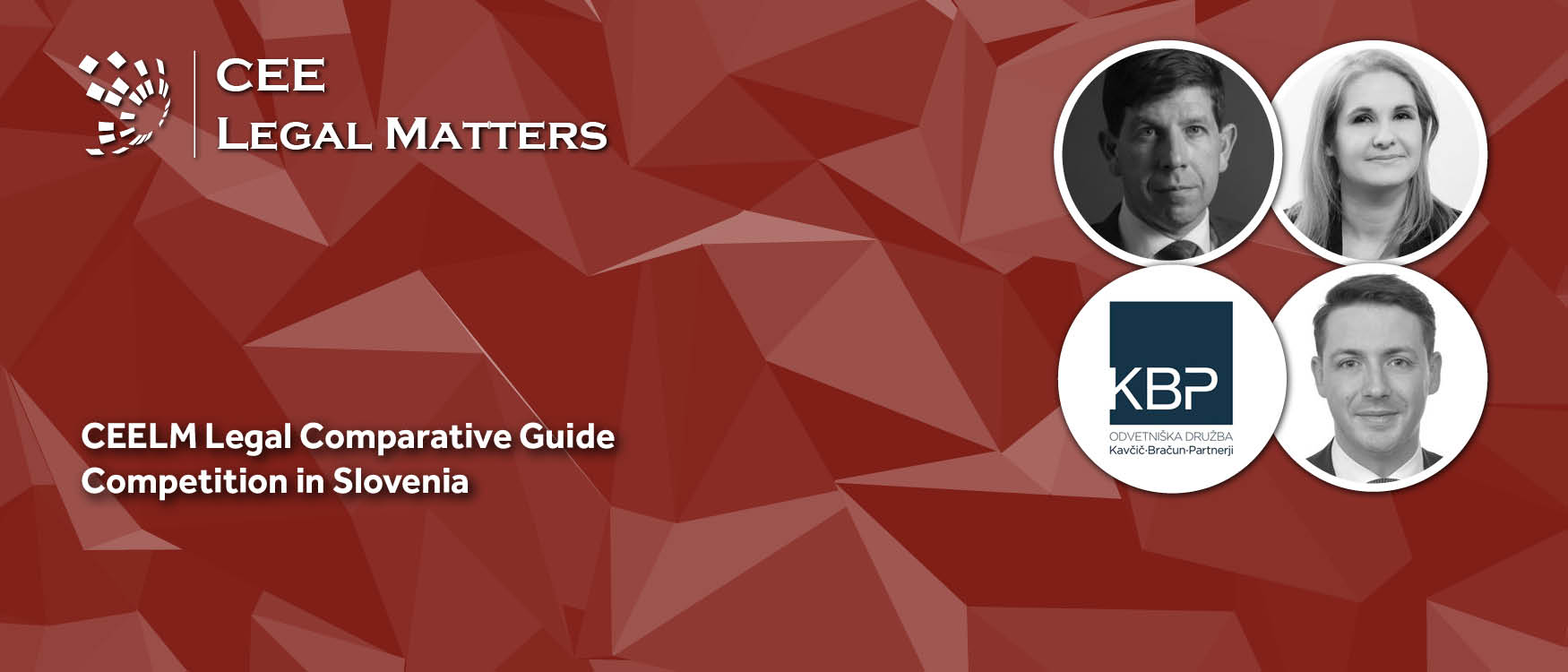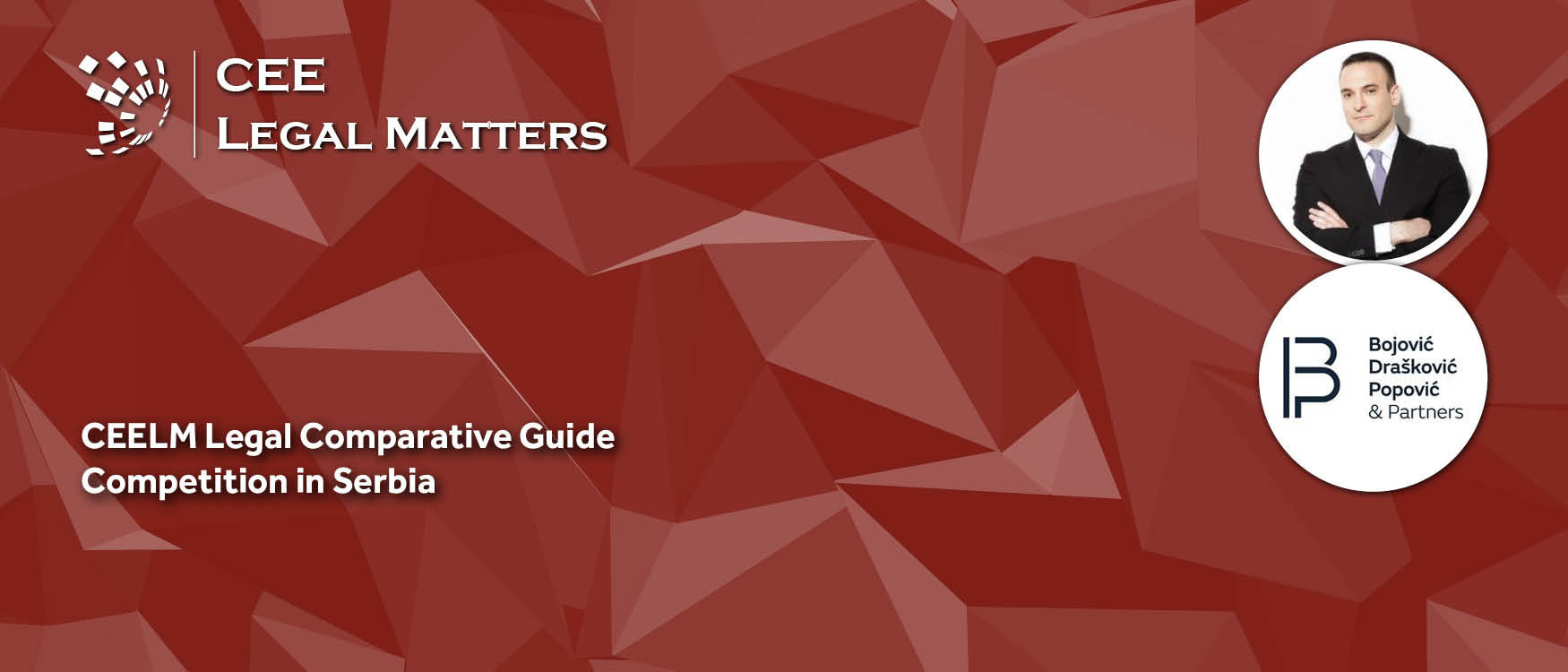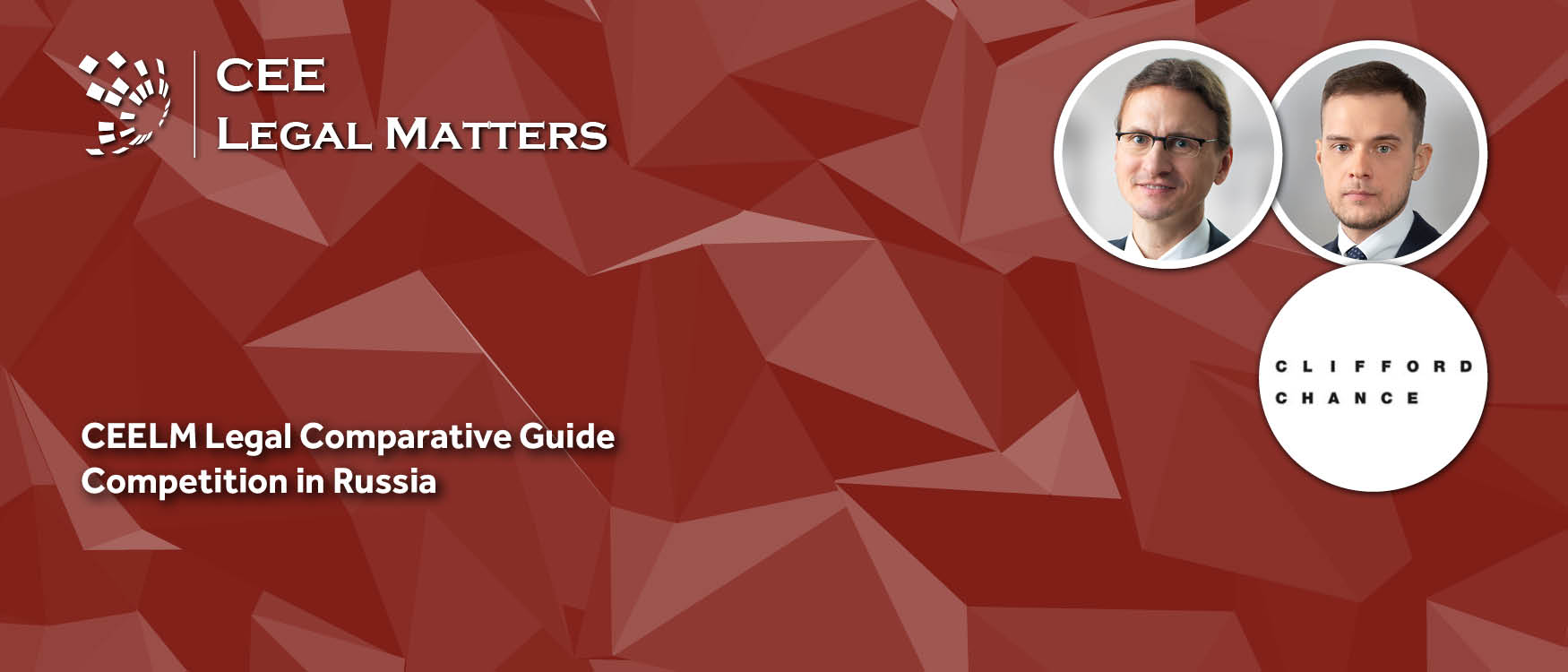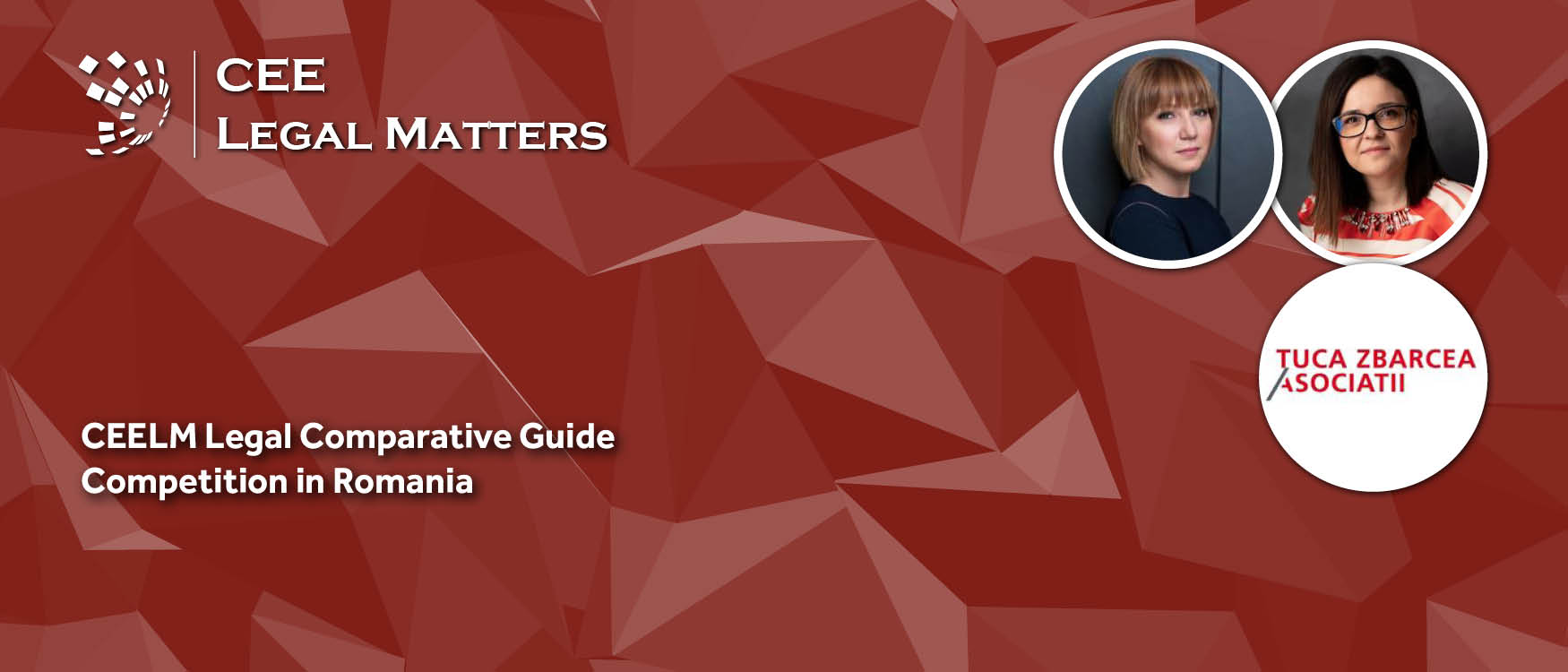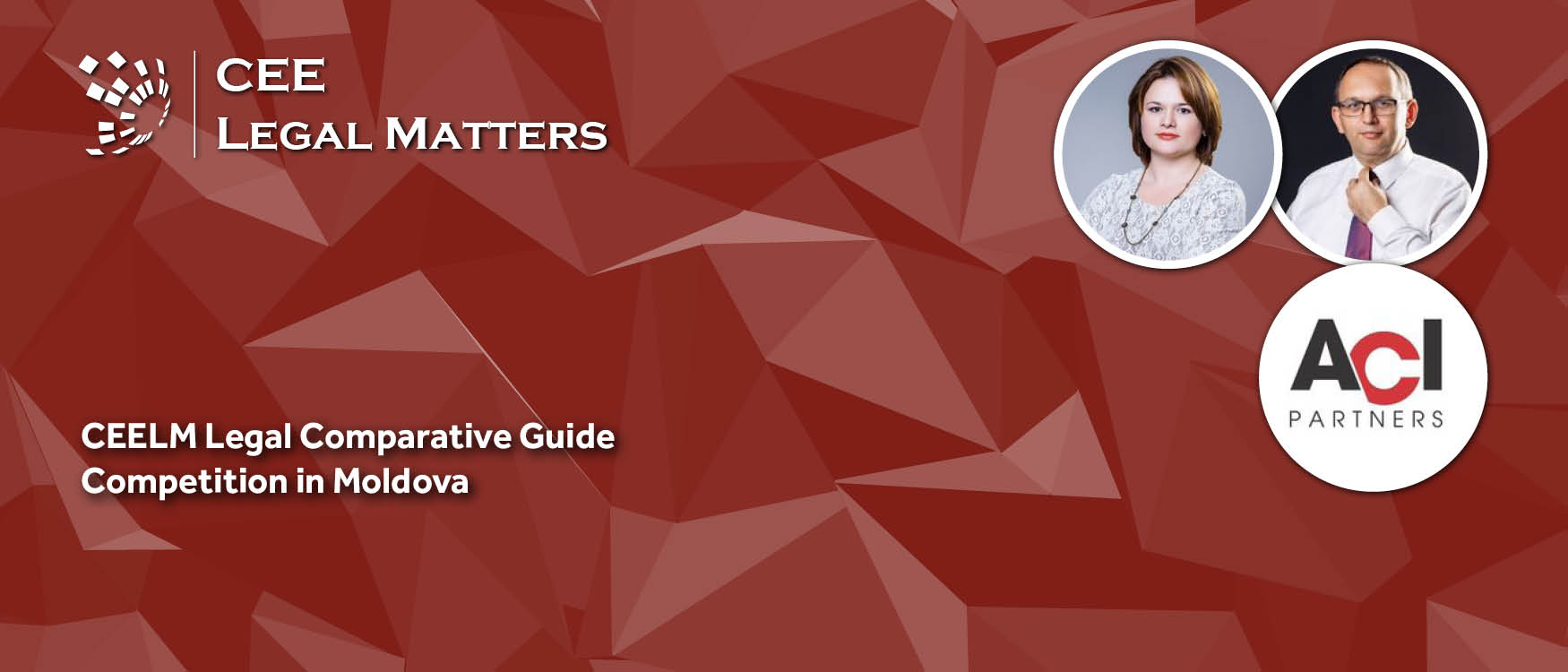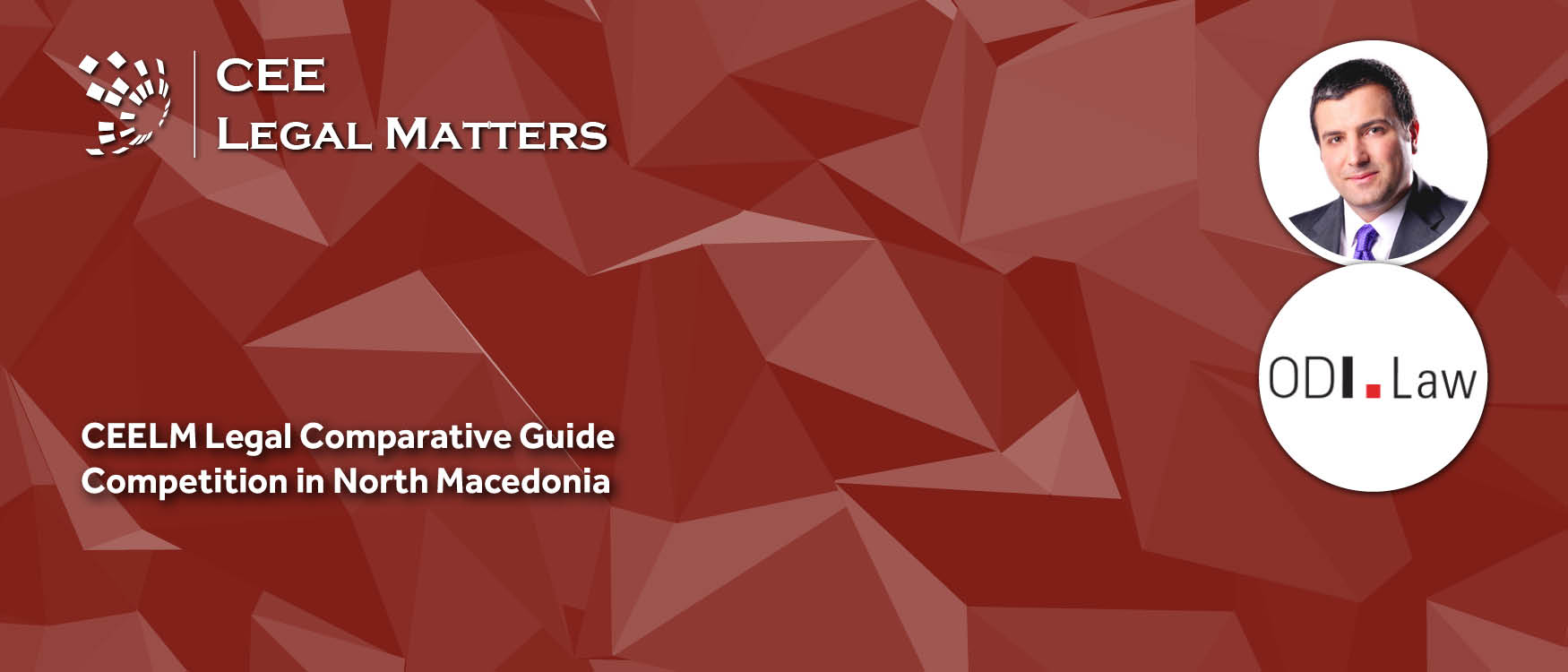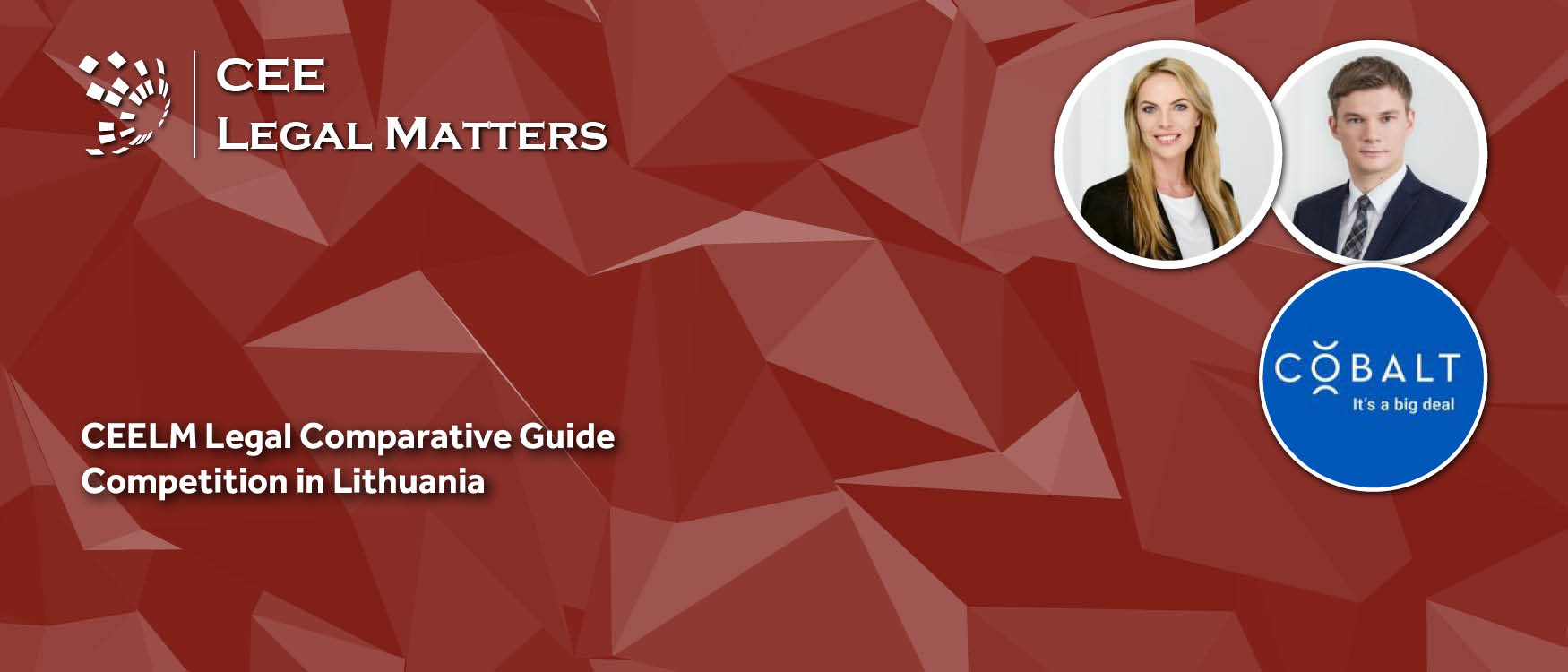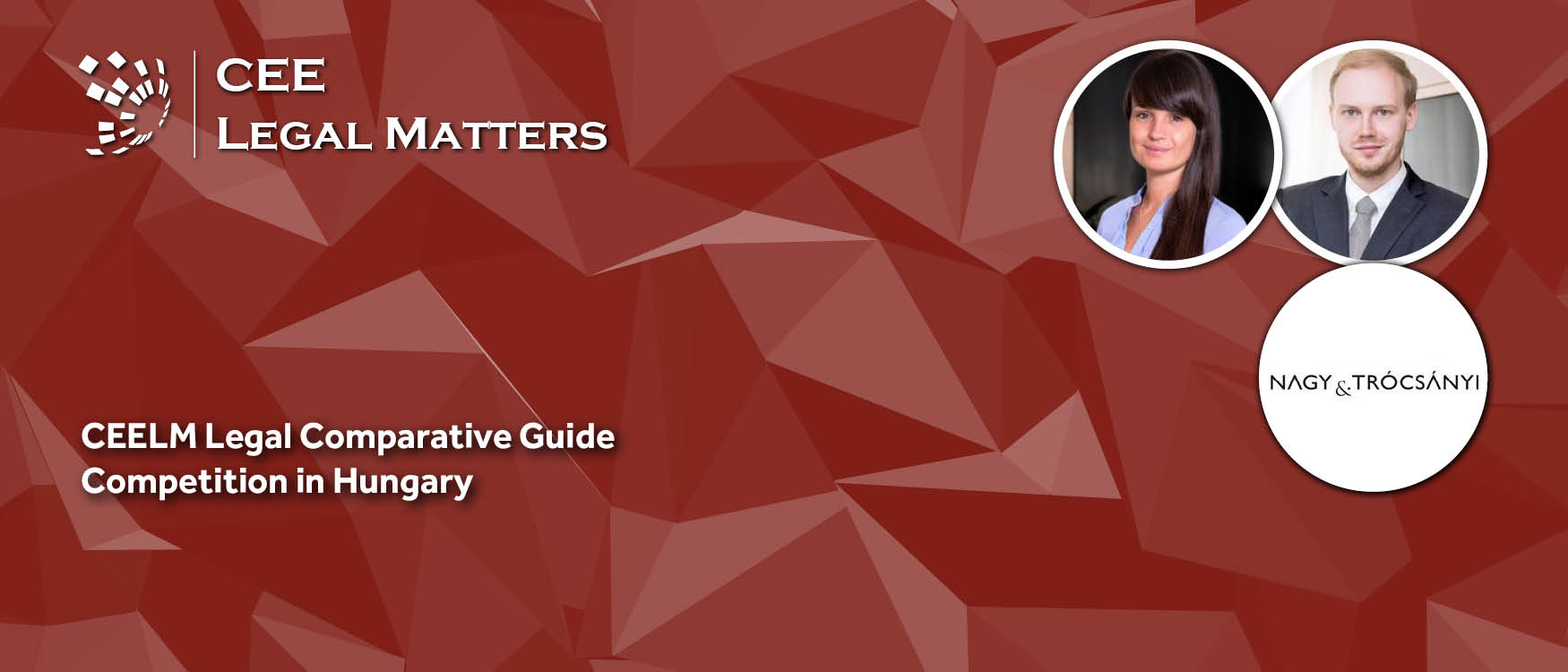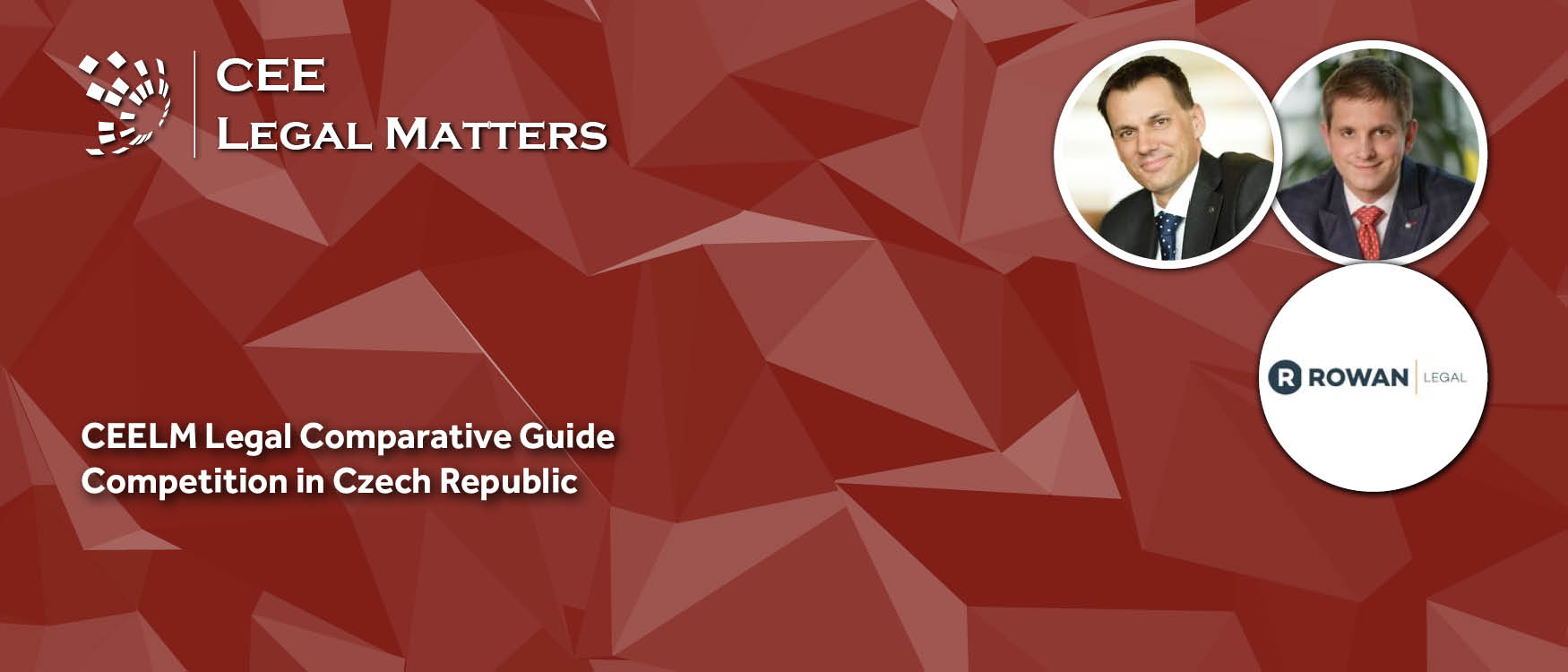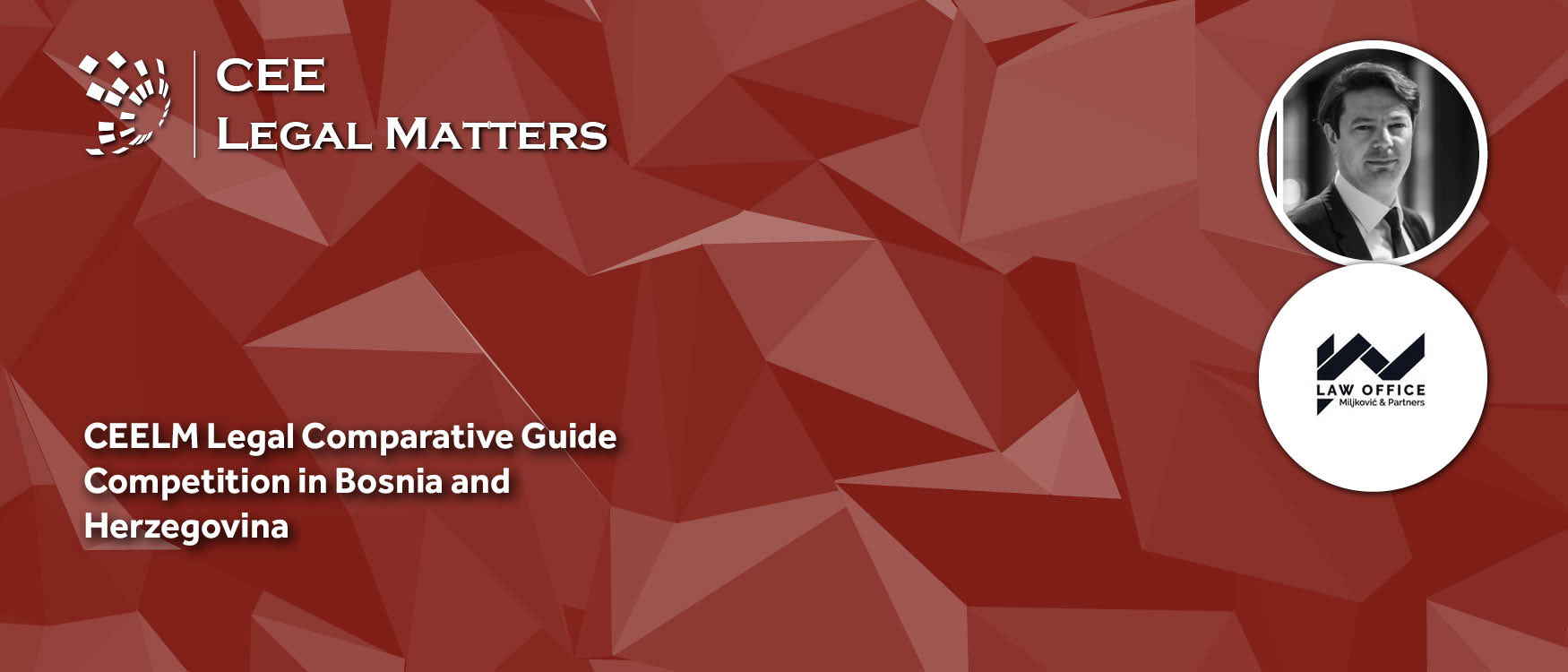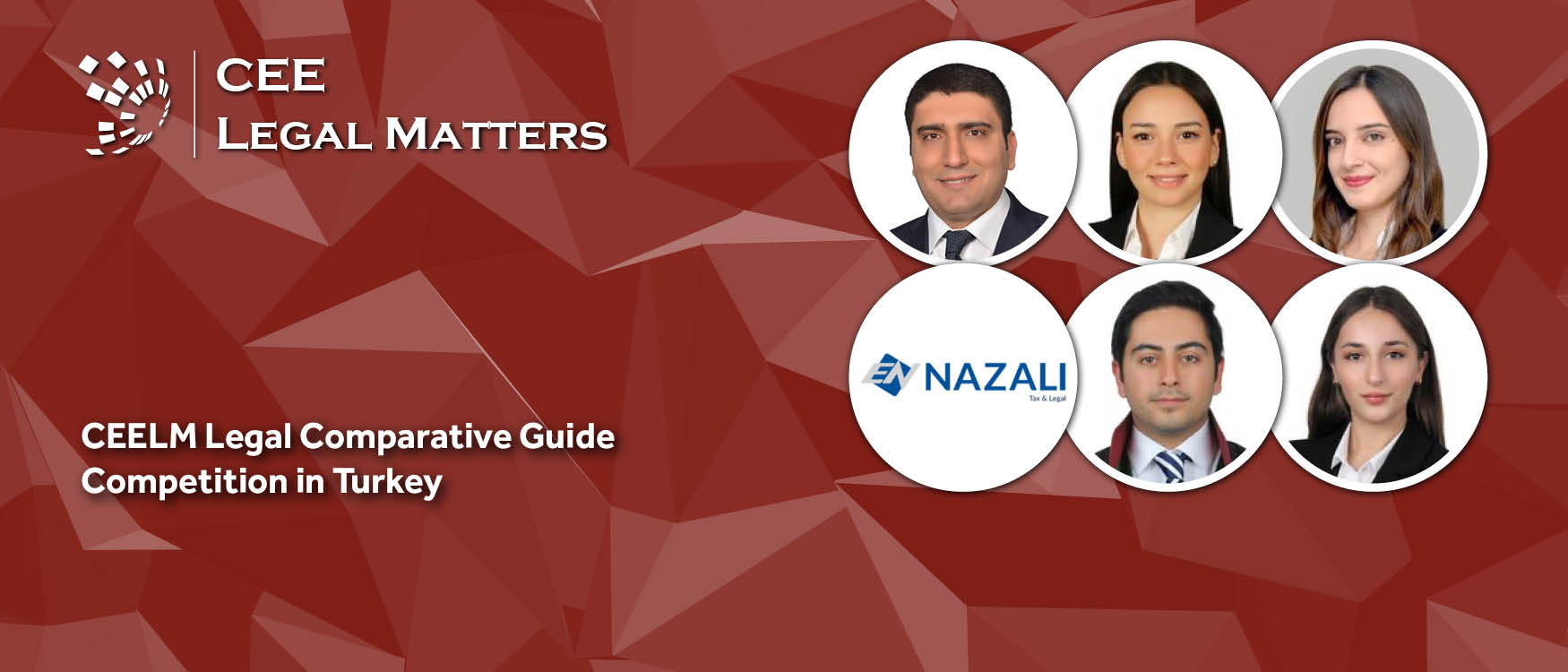Contributed by Eversheds Sutherland Bitans.
1. What are the main competition-related pieces of legislation in Latvia?
The main competition-related legislation in Latvia is the Competition Law of Latvia of October 4, 2001, (Competition Law). It covers the main areas of action – prohibited agreements, abuse of dominance, merger control, and competition distortion created by public administrative bodies. There is also the Unfair Retail Trade Practices Prohibition Law of January 1, 2016 (replaced by the Law on the Prohibition of Unfair Commercial Practices as of November 1, 2021, with transition period until April 19, 2022).
In addition, there is a number of Cabinet of Ministers Regulations (secondary legislation) that contain more detailed rules related to the main areas of action of the Competition Council of Latvia (Competition Council).
Agreements
- The Cabinet of Ministers Regulation No.798 of September 29, 2008, on exemptions of certain horizontal cooperation agreements from the prohibition of agreements indicated in the Section 11, paragraph one of the Competition Law;
- The Cabinet of Ministers Regulation No.797 of September 29, 2008, on exemptions of certain vertical agreements from the prohibition of agreements indicated in the Section 11, paragraph one of the Competition Law;
- The Cabinet of Ministers Regulation No.799 of September 29, 2008, on the procedure of filing and examination of notified agreements between undertakings.
Merger Control
- The Cabinet of Ministers Regulation No.800 of September 29, 2008, on the procedure of filing and examination of full-form and short-form notification of a concentration between market participants (Regulation on merger procedure);
- The Cabinet of Ministers Regulation No.362 of June 14, 2016, on the state fee for the evaluation of a concentration (Regulation on fee for merger review).
Sanctions
- The Cabinet of Ministers Regulation No.179 of March 29, 2016, on procedures for determining a fine for the infringements provided for in the Section 11, paragraph one, the Sections 13 and 14.1 of the Competition Law and the Sections 5, 6, 7, and 8 of the Unfair Retail Trade Practices Prohibition Law (Regulation on sanctions).
2. Are there any notable recent (last 24 months) updates of the Latvian competition legislation?
There are two recent notable updates of the Latvian competition legislation. First one relates to amendments of the Competition Law (entered into force on January 1, 2020) that prohibits public administrative bodies (and undertakings owned by these bodies) from distorting competition on Latvian market.
Three main areas covered are the following:
- Prohibition of discrimination by creating unequal competition conditions;
- Prohibition to create advantages for undertakings directly or indirectly controlled by public administrative body;
- Prohibition to implement activities, as a result of which other undertakings are forced to exit market or which burden entering or operating on the market of new (or potential) undertakings.
The first line of action is negotiation phase to ensure compliance initiated by the Competition Council. In case negotiations fail, a formal investigation procedure can be initiated and fine up to 3% of net turnover of the last financial year (but no less than EUR 250) may be imposed on undertaking owned by public administrative body.
Second update relates to the Unfair Retail Trade Practices Prohibition Law of January 1, 2016, that prohibits unfair trade practice throughout agricultural and food products supply chain, as well as use of procurement power by non-food product retailers towards suppliers. This law is replaced by the Law on the Prohibition of Unfair Commercial Practices as of November 1, 2021, (transition period until April 19, 2022).
The Law on the Prohibition of Unfair Commercial Practices combines both the European Parliament and the Council Directive on unfair trading practices in business-to-business relationships for agricultural and food supply chain and the clauses from soon expiring Unfair Retail Trade Practices Prohibition Law of January 1, 2016. Several prohibitions towards buyers are set out, amongst other, addressing unilateral making of amendments to agreements, payment requests not related to selling of goods, unjustified compensation requests.
Fines up to 0.2% of retailer's or buyer's net turnover in the last financial year, but not less than EUR 70, may be imposed by the Competition Council.
It should also be considered that major amendments are in progress related to the Competition Law. Most significant cover such areas as functional independence and financial resource increase of the Competition Council, changes in application of fines and increase of fines for some types of infringements (e.g. for prohibited vertical agreements and abuse of dominance infringements up to 10%), clarified rules on cooperation between competition authorities, application of interim measures and the relevant Articles of the Treaty on the Functioning of the European Union (TFEU). Initially February 1, 2021, was the proposed date of these amendments coming into force. However, certain aspects are still under debate and there is no indication as to a final draft of amendments and an actual date of effect.
Recently, public consultations were also announced by the Competition Council as to potential amendments of the Regulation on merger procedure. Proposal includes such amendments as prolongation of initial examination of merger notification prior accepting it from five working days currently to one-month, increased amount of information requirements, especially for full-form merger notifications. Stakeholders are invited to comment and it is envisaged that proposed amendments could come into force as of March 1, 2022.
3. What are the main concerns of the national competition authority in terms of agreements between undertakings? How about the sanctioning record of the authority?
Prohibited agreements are stipulated in the Section 11 of the Competition Law and are considered the severest violation of competition law. The detection of such agreements is declared an operational priority of the Competition Council and there is even a specialized Prohibited Agreement Unit that tackles these types of infringements as a priority.
In relation to fines, a distinction is made between prohibited agreements at vertical or horizontal level. For prohibited vertical agreements (between undertakings that are not direct competitors), the Competition Council is entitled to impose fine of up to 5% of the net turnover of each undertaking in the latest financial year (but no less than EUR 350 each). However, for prohibited agreements between competitors (cartel members), the Competition Council is entitled to impose more severe fine – up to 10% of the net turnover of each undertaking in the latest financial year (but no less than EUR 700 each).
In relation to the sanctioning record of the Competition Council, for the past ten-year period (from 2011 to 2021) there have been 44 infringement decisions taken in total. However, in the last four years, the number of infringement decisions has significantly dropped (two decisions in 2018, one decision in 2019, no decisions in 2020, and two decisions in 2021). There are three considerably recent cases that should be mentioned.
First, on April 12, 2019 the Competition Council fined companies involved in bid-rigging on supply of nanotechnology chemicals. The investigation of this case was initiated after receiving information from the Economic Crime Combating Board of the State Police and it was concluded that seven market participants coordinated tenders in two price quotations, carried out from 2012 to 2014 with the total contract sum exceeding EUR 800,000. An interesting and uncommon aspect of this case is that prohibited agreements were detected by the Competition Council at both vertical and horizontal level.
Second, on March 11, 2021, a decision was taken and fine imposed in the amount of EUR 221,000 by the Competition Council in the amelioration sector. Undertakings were caught exchanging commercially sensitive information prior their participation in tenders and, thus, the existence of a cartel was detected in this particular business sector for the second time since 2018 by the Competition Council.
Third, one of the most prominent recent cases concerns construction sector. After initial information received from the Corruption Prevention and Combating Bureau, on July 30, 2021, the Competition Council fined 10 construction companies for colluding on public and private tenders in Latvia. During the period from 2015 to 2018, representatives of the largest construction companies in Latvia regularly (at least three times a year) met and discussed around 90 potential and ongoing procurements. Undertakings were divided into two larger groups, each covering a similar amount of procurement contracts, with the division further documented and execution monitored. The total fine imposed by the Competition Council was over EUR 16.6 million.
The impact of this decision is wide as most of the largest construction sector companies in Latvia were involved. Currently almost all undertakings have appealed this decision (with one exception – the undertaking that collaborated during investigation phase and admitted taking part in cartel activity). However, if the Competition Council decision comes into effect after a court review, a one-year long prohibition would be in place to participate in public tenders for all 10 undertakings (with the possibility to restore trust). Several projects where cartel activity took place involves the European Union distributed funds thus a potential request to the partial or full return of such funds may also follow.
4. Which competition law requirements should companies consider when entering into agreements concerning their activities on the Latvia territory?
Agreements between undertakings which have as their object or effect hindrance, restriction, or distortion of competition in the territory of Latvia, are prohibited, null, and void from the moment of being entered into.
The Section 11 paragraph one of the Competition Law sets out the main examples of prohibited agreements that, amongst other, contain the following:
- direct or indirect price and tariff fixing, coordination of provisions for their formation;
- the restriction or control of production volumes, sales, markets, technical development, investment;
- the allocation of markets, according to territory, customers, suppliers, or other parameters; and
- the coordination of participation in tenders, except when joint tendering is publicly announced and purpose of such tender is not to hinder competition.
A distinction is made between two types of agreements, depending on level in production or distribution chain where particular undertakings operate. There are prohibited horizontal agreements (between undertakings of the same level of production or distribution) or cartels and prohibited vertical agreements (between undertakings that represent different levels of production or distribution chain, e.g., manufacturer and wholesaler, or wholesaler and retailer).
The concept of a “prohibited agreement” under the Competition Law in practice is similarly applied as in the European Union under the TFEU Article 101.
5. Does a leniency policy apply in Latvia?
There is a leniency policy in place, according to the Competition Law Section 12. More detailed terms of participation requirements in the leniency program are indicated in the Regulation of sanctions.
The leniency program provides:
- Full exemption from a fine and an exemption from the prohibition to participate in public procurements for one year after infringement decision has come into effect (according to the Section 42 paragraph one, the Section 6 of the Public Procurement Law) for the first undertaking to submit evidence on voluntary basis;
- Partial reduction from a fine in case the undertaking does not qualify for full immunity (if the investigation has already been initiated, the undertaking is not the first one to report infringement, or it is the initiator of infringement).
The application must contain the following information, to the extent it is known to the applicant at the time of submission: members and description of the cartel, available evidence, written confirmation that all criteria are satisfied to apply for exemption or reduction of fine. Within five working days of receipt of application, the Competition Council will notify the applicant in writing as to whether the application has been accepted or rejected (providing reasons for rejection). Non-acceptance of the application does not prevent it from being resubmitted upon rectification of any deficiencies.
6. How is unilateral conduct treated under Latvian competition rules?
According to Section 1 paragraph one of the Competition Law, a dominant position is the economic (commercial) position in a relevant market of a market participant or several market participants if such a participant or such participants have the capacity to significantly hinder, restrict, or distort competition in any relevant market for a sufficient period of time by acting with full or partial independence from competitors, clients, suppliers, or consumers.
There are no market share thresholds or assumptions indicated in either law or any guidelines produced by the Competition Council. Thus, the concept of dominance is examined on a case-by-case basis, taking into account relevant facts of the particular case.
A dominant position itself does not constitute a violation, however, the abuse of such a position is prohibited. A non-exhaustive list of examples for exclusionary and exploitative abusive behavior is indicated in the Section 13 paragraph one of the Competition Law:
- refusal to enter into transactions or to amend provisions of transaction without objective reason, including unfair and unjustified refusal to supply;
- restriction of output or product sale, market, or technical development without objective reason;
- imposition of provisions according to which entering into, amendment, or termination of a transaction is made dependent on whether additional obligations are undertaken;
- application of unfair purchase, selling prices, or other unfair trading provisions;
- application of unequal provisions by way of creating disadvantages for some undertakings.
The concept of “abuse of dominance” under the Competition Law in practice is applied similarly as in the European Union under TFEU Article 102.
Fines can be imposed for up to 5% of the net turnover of the previous financial year of the dominant undertaking, but no less than EUR 350, according to Section 14 paragraph two of the Competition Law.
7. Are there any recent local abuse cases of relevance?
For the past ten-year period (from 2011 to 2021) there have been 18 infringement decisions in total taken by the Competition Council. However, in the last five-year period, the number of infringement decisions has been insignificant. There are no decisions in 2017, 2018, and 2019, one decision in 2020, and one decision in 2021. However, there are three recent cases and processes with considerable importance that should be mentioned.
First of all, on December 28, 2020, the Competition Council imposed a fine close to EUR 5.7 million on the public capital company LDZ CARGO for abusing its dominant position by placing obstacles for competitors to operate in rail freight transport market in Latvia. For example, a discriminatory pricing practice was applied to customers of competitors, and, in some instances, contracts were terminated without objective justification. This was the first abuse of dominance decision taken by the Competition Council since 2016 and first decision since 2013 where TFEU Article 102 was applied in parallel to the corresponding Section 13 of the Competition Law.
Second, a settlement was reached on July 16, 2021, with the Riga City Municipality and SIA Getlini EKO in relation to a planned monopolization of the waste management market for 20 years through a concession procedure. Fines were paid to the state budget in the amount of EUR 885,000. It should be noted that in this case, on September 9, 2019, the Competition Council adopted an interim measure decision (a rare practice of the Competition Council) imposing the obligation to immediately stop the implementation of the concession procedure (and agreement) to avoid negative consequences and retain competition on the waste management market in the Riga city territory.
Third, there was another activity in waste management sector that resulted in an infringement decision. On June 22, 2021, the Competition Council imposed fine in the amount of slightly over EUR 51,000 on Jelgava’s City Municipality for abuse of a dominant position related to the municipality's actions – the illegal creation of a monopoly in the waste management market. The right to operate in the waste collection and transportation market in the Jelgava city territory was granted to the Jelgava City Municipality owned capital company Jelgavas komunalie pakalpojumi. The market was closed to competition for more than seven years, as a result.
In addition, on July 29, 2021, the Competition Council amended obligations imposed on the dominant energy market undertaking AS Latvenergo with a decision in 2009. It was identified that the energy produced by “other players” currently active on the market compared to the situation in 2009 is still relatively low when compared to AS Latvenergo. AS Latvenergo’s capacity on the market in Riga City Municipality still accounts for 90% of the total volume of energy. Thus, the legal obligations were updated, stipulating that AS Latvenergo is not allowed to set prices in Riga that are below specific objectively justifiable costs. The level of such costs were identified during a consultation process with both market participant’s (AS Latvenergo’s competitors) and the Public Utilities Commission.
8. What are the consequences of a competition law infringement?
Financial sanctions for each type of infringement are as follows:
- Prohibited agreements – up to 5% of the net turnover in the latest financial year of each undertaking for prohibited vertical agreements; up to 10% of the net turnover of each undertaking in the latest financial year for undertakings involved in cartel activity;
- Abuse of dominance – up to 5% of the net turnover of dominant undertaking in the last financial year;
- Unfair Retail Trade Practices - up to 0.2% of retailer's or buyer's net turnover in the last financial year;
- Distortion of competition from public administrative bodies – up to 3% of net turnover of undertaking owned by a public administrative body in the last financial year;
- Un-notified mergers – up to 3% of turnover of either acquirer or merged undertaking in the previous financial year.
In addition to monetary fines, the Competition Council has additional tools that are used in the course of action.
According to the Section 8 of the Competition Law, the Competition Council may also take a decision to impose legal obligations on the undertaking, depending on the particular detected infringement type and potential remedies possible. Such an obligation may be included in the final decision (together with the detection of infringement and the imposition of a fine) or in a separate interim measure decision to avoid immediate detrimental effects on competition. A separate interim measure decision taken by the Competition Council is not common practice, however, there is one considerable recent example.
As mentioned above, after the initiation of an infringement procedure in relation to the waste management system of the Riga City Municipality, on June 14, 2019, the Competition Council took an interim measure decision. Amongst other, it was ordered to immediately suspend the concession procedure as it affected the collection and transportation of household waste in the Riga city territory. This decision was appealed by the undertakings concerned. After a speedy court review, on October 1, 2019, the Administrative District Court of Latvia agreed with the Competition Council and the interim measure decision remained in force.
In relation to the distortion of competition from public administrative bodies, a prior potential imposition of monetary sanctions, the Competition Council carries out negotiations with respective administrative bodies or the undertaking owned by it. Only in the case in which the negation phase is unsuccessful is a formal procedure initiated, an infringement is detected, and a fine along with legal obligations are imposed.
For un-notified merger cases, in addition to the monetary fine, after an investigation into the particular case, the Competition Council may take the decision to prohibit a merger and order undertakings to de-merge.
There is also the possibility to initiate damage actions on Competition Law infringements in court. A rather unique mechanism included in the Competition Law concerning damage actions is the presumption that in case cartel activity is detected, prices have presumably raised by 10%, unless proven otherwise (the Section 21 paragraph three of the Competition Law).
9. Is there any competition law requirement in case of mergers & acquisitions occurring or impacting the Latvian market?
According to Section 15 paragraph one of the Competition Law, concentration arise in any of the following situations:
- consolidation or merging of two independent undertakings to become one undertaking;
- the acquisition of control over another undertaking;
- the acquisition of control (or rights to use) assets that increase the market share of acquirer.
The concept of “concentration” under the Competition Law in practice is similarly applied as in the merger regime of the European Union. However, according to established case-law, the acquisition of assets, that do not constitute undertaking, is also considered a potentially notifiable concentration. This is in situations where particular assets increase the acquirer’s market share, for example, such assets as supermarket, petrol stations, and pharmacy premises.
Turnover thresholds for mandatory notification are indicated in the Section 15 paragraph two of the Competition Law:
- Combined aggregate turnover of merging parties is at least EUR 30 million in the territory of Latvia; and
- Aggregate turnover of each of at least two merging parties is at least EUR 1.5 million in the territory of Latvia.
Ex-post control may also be initiated by the Competition Council for mergers that fall below notification thresholds 12 months from the effective date of concentration if:
- the merging parties are direct competitors and their total market share on the relevant market exceeds 40% as a result of the merger;
- there is reasonable suspicion, that dominant position in market can be created or strengthened, or competition on relevant market can be significantly decreased as a result of the merger.
To avoid legal certainty in a form of ex-post review, merging parties may:
- request a written confirmation that the Competition Council will not use its right to request a merger notification;
- submit a notification voluntarily for the Competition Council’s review.
10. What is the normal merger review period?
Once a merger notification is submitted, within five working days the Competition Council determines as to whether a notification is deemed accepted and the investigation period starts.
In case the investigation period has started, the examination takes place as follows:
- For cases that do not raise serious concerns, a final decision usually is taken within one month (Phase I);
- For complicated cases that need an in-depth examination, a final decision may take up to four months (Phase II). The four-month deadline may be further extended by 15 business days if potential remedies need to be assessed.
To speed up the investigation process, it is possible to take several additional steps. First, approach the Competition Council prior to the official notification, using pre-notification consultation possibilities (meetings, sending draft notification prior official notification to the Competition Council experts for comments). Second, provide additional information that might be beneficial for the Competition Council during the review process (including full-form notification in cases when short-form notification can be submitted). At the same time, the workload of the Competition Council may cause potential delays even in less complicated cases. This should be taken into account in overall transaction planning phase.
There is no formal prohibition to complete a notified transaction before a formal clearance is received from the Competition Council (no gun-jumping prohibition). However, risks should be examined with due care (especially for more complicated cases where a Phase II investigation is initiated) as the implementation of merger without received clearance may result in fine of up to 3% of the turnover of the last financial year and a potential order to de-merge. Depending on the particular facts of the case, potential information exchange risks can also be present with fines of up to 10% of the turnover of the last financial year.
11. Are there any fees applicable where transactions are subject to local competition review?
There are state fees applicable for notified transactions reviews:
- EUR 2,000 – in case short-form notification is submitted;
- EUR 2,000 – in case ex-post filing is requested or notification is submitted voluntarily;
- EUR 4,000 – in case aggregate turnover of merging parties in preceding financial year in Latvia has been in the range from EUR 30 million to EUR 80 million;
- EUR 8,000 – in case aggregate turnover of merging parties in preceding financial year in Latvia has been above EUR 80 million.
Payment of the state fee is an obligatory prerequisite to deem the notification formally complete and accepted by the Competition Council. Thus, payment formalities should be planned in advance.
12. Is there any possibility for companies to obtain State Aid in Latvia? If yes, under what conditions?
Yes, the same as elsewhere in the European Union, it is possible for companies to apply for and obtain state aid in Latvia under the various established programs (usually sectoral) with their own specific set requirements and prerequisites.
Generally, as per the Law on Control of Aid for Commercial Activity, all state aid programs in Latvia are under either the responsibility of the Ministry of Finance or the Ministry of Agriculture and the state institutions subordinate to respective ministries. As for funding – state aid in Latvia can be granted from the European Union funded programs, as well as state and municipal funds.
This fragmentation of responsibilities practically means that information on existing state aid programs that are open for applications is scattered across various sources. For example, the Central Finance and Contracting Agency of the Republic of Latvia usually organizes the European Union-funded schemes under the responsibility of the Ministry of Finance. While the Development Finance Institution AS Altum”(also under responsibility of the Ministry of Finance) is the institution in charge of state aid programs related to state and the European Union-funded loans (for specific purposes such as improving energy efficiency) to companies as well as natural persons. Similarly, the Rural Support Service of the Republic of Latvia administers state aid in the agriculture sector (with the following sub-sectors – agriculture and rural development, fisheries, and forestry).
It should be highlighted that due to the COVID-19 crisis the State Revenue Service as well as the Development Finance Institution AS Altum have created extensive state aid programs for companies facing difficulties. These programs range from state partly guaranteed loans to various tax “holidays” to ensure such companies with better cashflow as well as decrease possibility of potential insolvency.
13. What were the major changes brought by the COVID-19 crisis in the field? How likely is it for these changes to stick?
At the beginning of the COVID-19 crisis in March 2020, the Competition Council aligned with the statement of the European Competition Network, indicating that extraordinary situations may trigger the need for companies to cooperate in order to ensure supply and fair distribution of scarce products to all consumers. Thus, actively intervening against necessary and temporary measures to avoid a shortage of supply would not have take place by the Competition Council. At the same time, it was stated that there will be no hesitance in acting towards undertakings taking advantage of the situation by cartelizing or abusing their dominant position.
Since then, there have been several public announcements by the Competition Council related to tge effect of the COVID-19 crisis on competition in some particular sectors, for example, the Unfair Retail Trade Practices Prohibition Law’s application or the effect of nationally imposed restrictions for some particular sectors (e.g., finances, beauty care). In a public statement on June 16, 2020, it was mentioned that, to an increasing degree, the Competition Council has been reviewing emergency tenders of medical equipment and services related to COVID-19. Unfortunately, no information is publicly available on the Competition Council’s conclusions from these reviews.
A major change brought by the COVID-19 crisis is the remote contact possibilities with the Competition Council experts. Video conferencing is used instead of meetings in person. At the same time, information to the Competition Council is provided mainly in electronic format (for example, electronically signed merger notifications with lengthy annexes). Thus, all technical details of an electronic submission of information can be priorly discussed in detail with a relevant Competition Council expert to avoid any technical or other problems during the submission procedure. It is highly likely that the electronic format of communication with the Competition Council may be there to stay.

